In the summer of 1980, Poland had been in a fluctuating economic crisis for decades. The communist regime had amassed an incalculable amount of foreign debt and in an attempt to improve their situation, they began price-fixing on basic goods. The increase in food prices caused a wave of unrest around the country, and it certainly wasn't the first time. But it was in the shipyards of Gdańsk where the issue of unbearable working conditions was made personal...
A popular crane operator, Anna Walentynowicz, was unjustly fired from her position a few months before her planned retirement. In response, her colleagues unionised to demand labour reforms. Led by electrician and close friend Lech Wałęsa, the workers began their illegal strike. Wałęsa and his colleagues knew how the communist authorities would deal their protest. They had learnt from the violent suppression of their strike 10 years earlier, which saw 75 of their comrades shot dead in the streets. So this time, instead of confronting the communist authorities, they locked themselves inside the shipyard on August 14th. Then after lengthy discussions between the Interfactory Strike Committee (PL: Międzyzakładowy Komitet Strajkowy - MKS) and other workplace representatives from around the country, they wrote their demands on wooden boards before placing them on the front gate.
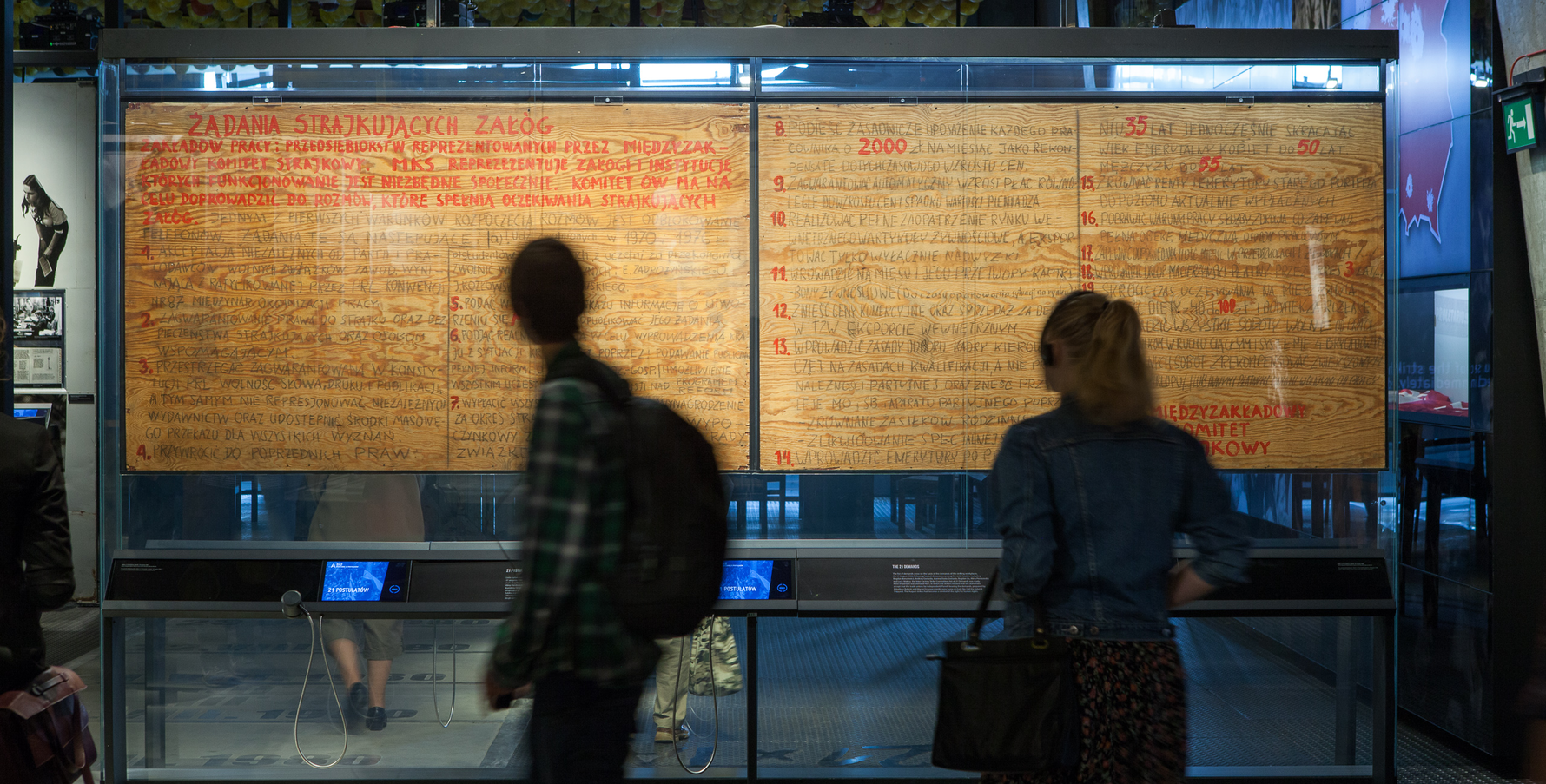

As word of the strike spread across Poland and further abroad, the international press descended upon the Gdańsk shipyards and waited eagerly for a result. All the while, the communist authorities had tanks and armoured vehicles stationed outside the shipyard gates, making their presence known. On August 31st, Lech Wałęsa and other members of the Interfactory Strike Committee (MKS) met with communist party delegates in the Occupational Health and Safety building. With a huge crowd gathered outside in support of the strike as well as the media presence in front of the talks, it was clear to communist delegates that they were now up against an entire movement, and so they agreed to sign on the demands. In Polish, this document is now known as Porozumienia Sierpniowe (ENG: August Accords or Gdańsk Agreement, Gdańsk Social Accords or August Agreements).
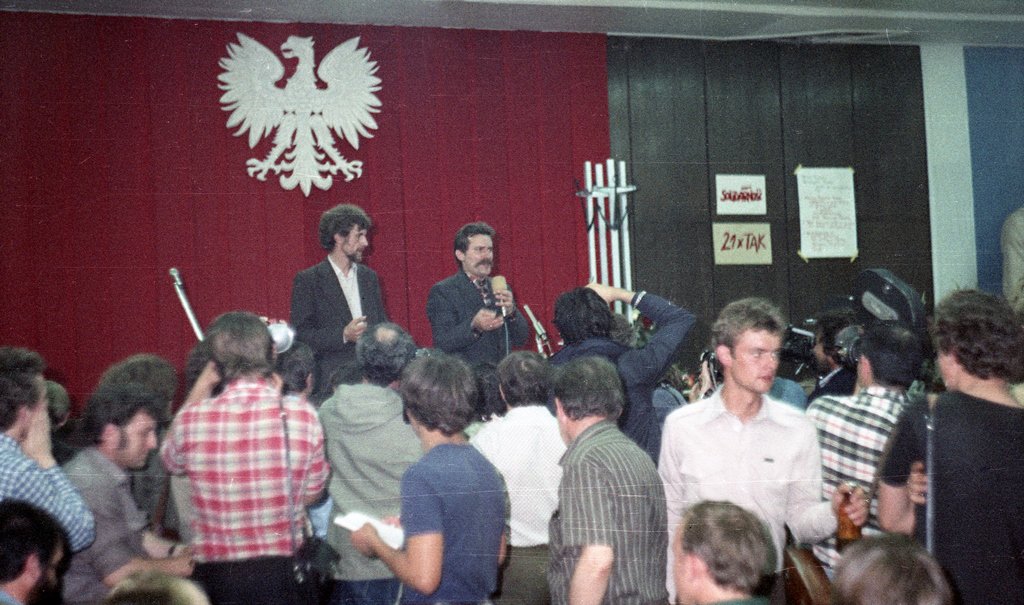
The story certainly doesn't end here. The communists would declare martial law in 1981, seeing Solidarity banned and it's leaders arrested. But ultimately, the strentgh of the movement amongst the polish people was too great for the regime to ignore. Continuing to be active as an underground organization, in 1989, Solidarity was finally allowed to form as a political party and participate in the first free elections of the communist. Lech Wałęsa became the country's first democratically-elected president, and Poland was the first country in the Soviet-bloc to peacefully transition out of Communism. This inspired neighbouring countries followed suit, and peaceful pro-democratic revolutions ripple across the eastern bloc. By 1991, the USSR itself realised it was no longer able to maintain its system.
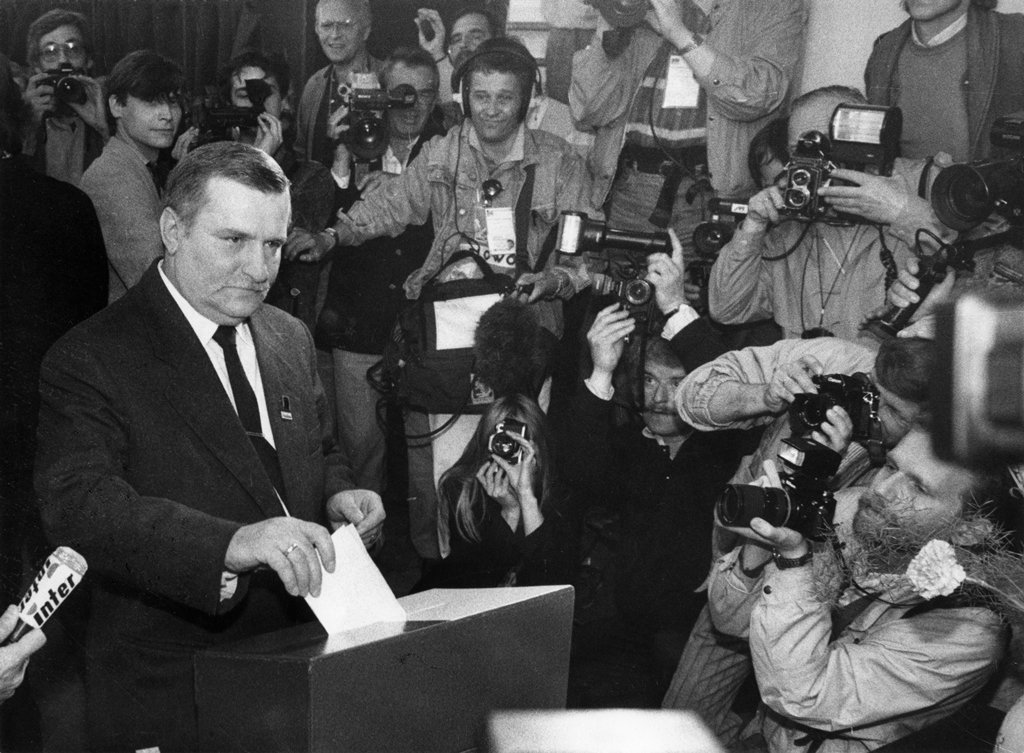
Of course, there were a number of factors that led to the end of communism in Europe. But without a doubt, the agreements struck by Solidarity in 1980 was the first successful blow dealt to the communist system. More importantly, democracy in Poland was achieved through peaceful means and not by a violent revolution or a coup d'etat. Solidarity was a movement born out of the need to support a friend and colleague and the realisation that when we are united, change is absolutely possible. As Lech Wałęsa would later be quoted 'He who puts out his hand to stop the wheel of history will have his fingers crushed'.
Such is the power of Solidarity.
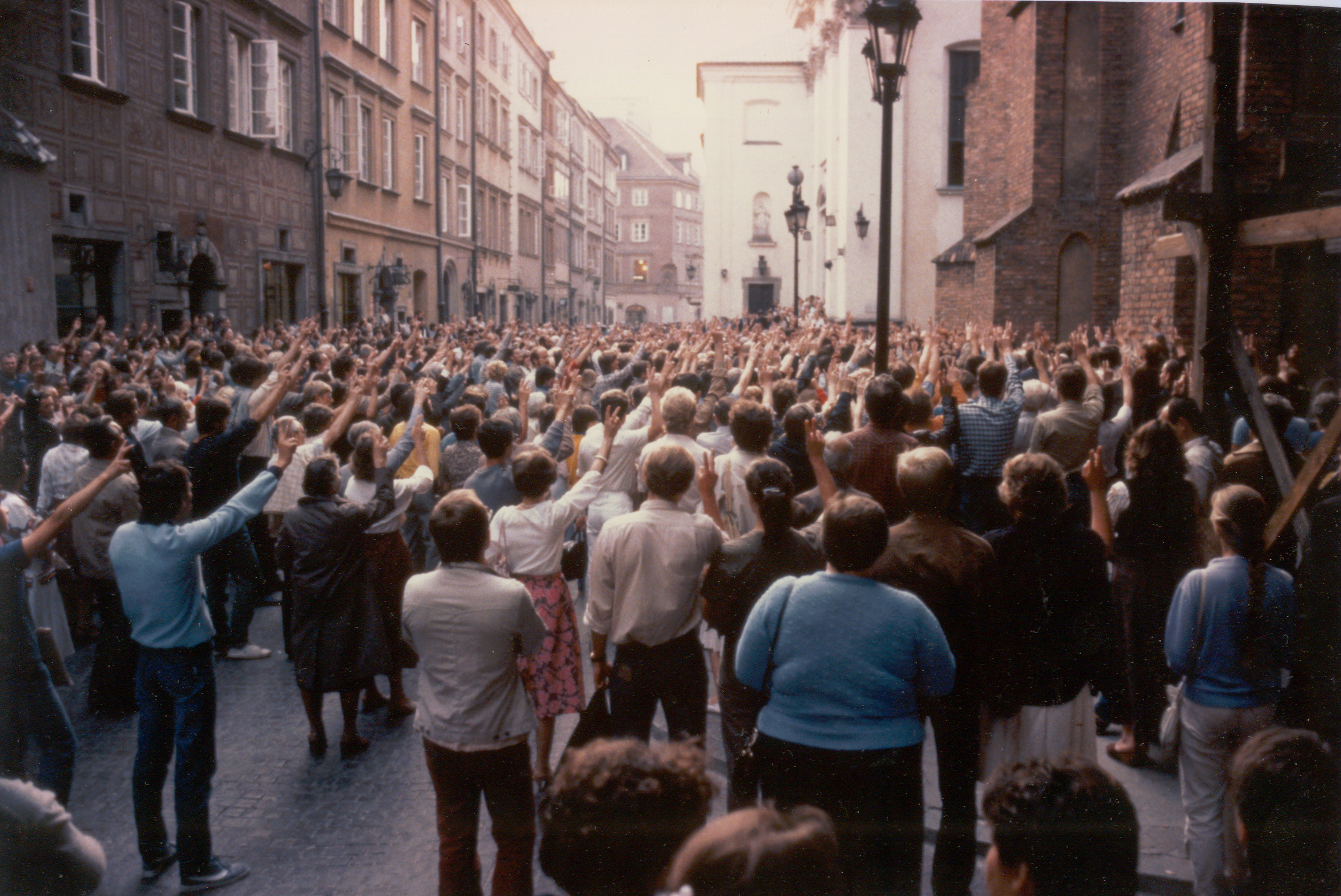
The 21 Demands of the Interfactory Strike Committee (Translated into English)
1. Acceptance of free trade unions independent of the Communist Party and of enterprises, in accordance with convention No. 87 of the International Labor Organization concerning the right to form free trade unions, which was ratified by the Communist Government of Poland.
2. A guarantee of the right to strike and of the security of strikers and those aiding them.
3. Compliance with the constitutional guarantee of freedom of speech, the press and publication, including freedom for independent publishers, and the availability of the mass media to representatives of all faiths.
4. A return of former rights to: 1) People dismissed from work after the 1970 and 1976 strikes, and 2) Students expelled from school because of their views. The release of all political prisoners, among them Edward Zadrozynski, Jan Kozlowski, and Marek Kozlowski. A halt in repression of the individual because of personal conviction.
5. Availability to the mass media of information about the formation of the Inter-factory Strike Committee and publication of its demands.
6. The undertaking of actions aimed at bringing the country out of its crisis situation by the following means: a) making public complete information about the social-economic situation, and b) enabling all sectors and social classes to take part in discussion of the reform programme.
7. Compensation of all workers taking part in the strike for the period of the strike, with vacation pay from the Central Council of Trade Unions.
8. An increase in the base pay of each worker by 2,000 złoty a month as compensation for the recent raise in prices.
9. Guaranteed automatic increases in pay on the basis of increases in prices and the decline in real income.
10. A full supply of food products for the domestic market, with exports limited to surpluses.
11. The abolition of ‘commercial’ prices and of other sales for hard currency in special shops.
12. The selection of management personnel on the basis of qualifications, not party membership. Privileges of the secret police, regular police and party apparatus are to be eliminated by equalizing family subsidies, abolishing special stores, etc.
13. The introduction of food coupons for meat and meat products (during the period in which control of the market situation is regained).
14. Reduction in the age for retirement for women to 50 and for men to 55, or after 30 years’ employment in Poland for women and 35 years for men, regardless of age.
15. Conformity of old-age pensions and annuities with what has actually been paid in.
16. Improvements in the working conditions of the health service to insure full medical care for workers.
17. Assurances of a reasonable number of places in day-care centers and kindergartens for the children of working mothers.
18. Paid maternity leave for three years.
19. A decrease in the waiting period for apartments.
20. An increase in the commuter’s allowance to 100 złoty from 40, with a supplemental benefit on separation.
21. A day of rest on Saturday. Workers in the brigade system or round-the-clock jobs are to be compensated for the loss of free Saturdays with an increased leave or other paid time off.


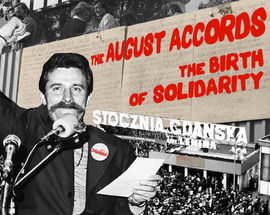
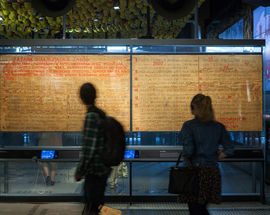
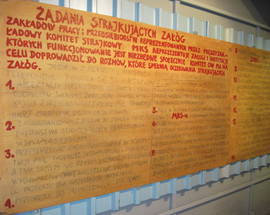
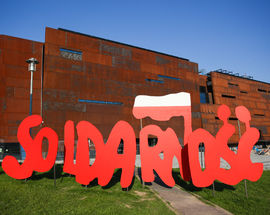
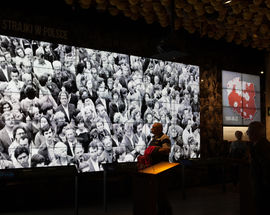
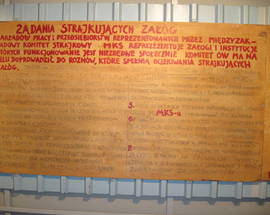
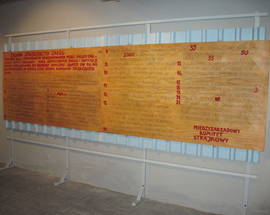

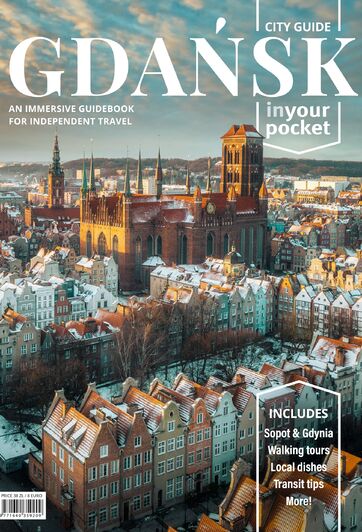
Comments